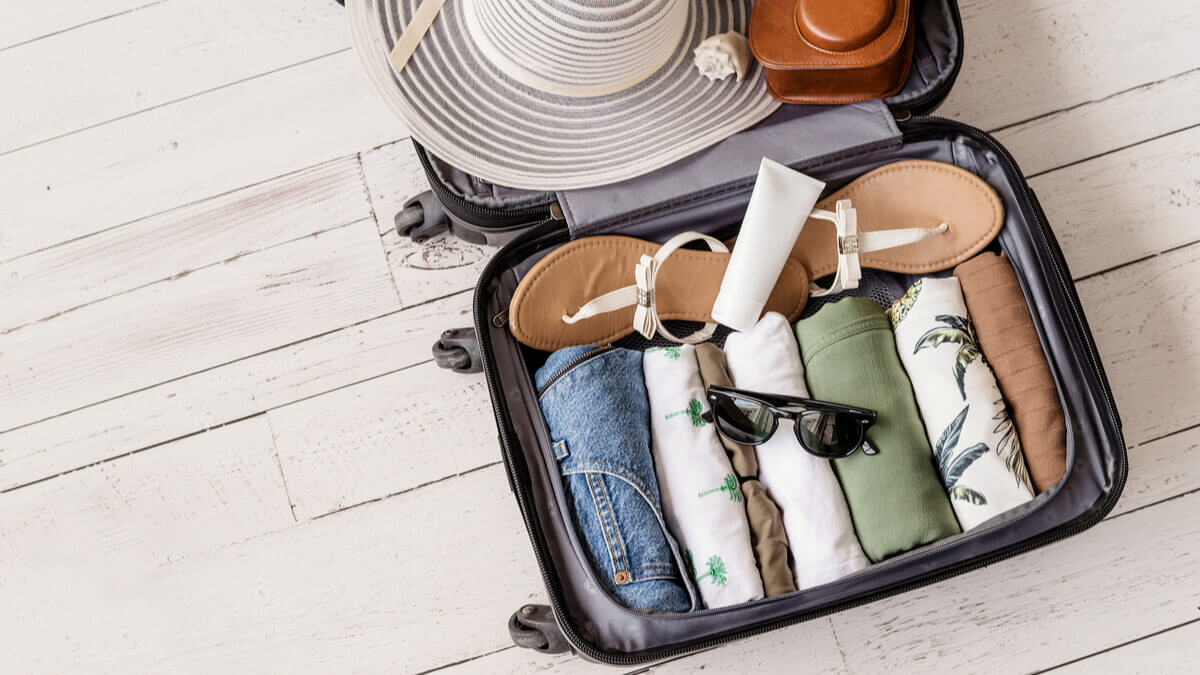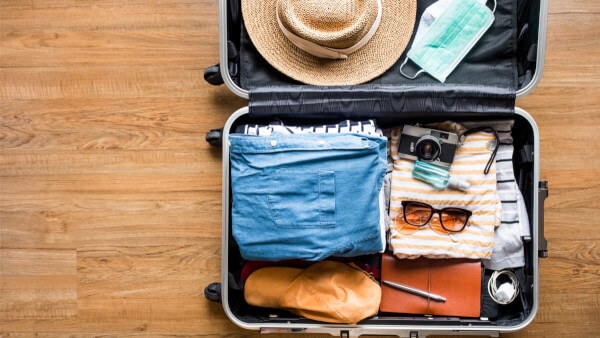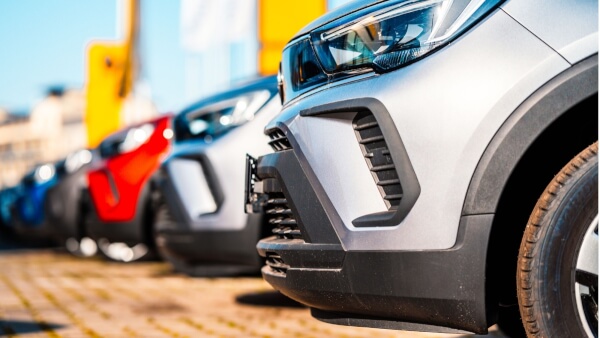Luxury solo travel: your guide to high-end solo adventures
Explore the best luxury solo travel experiences with our ultimate guide.

Planning a trip overseas? Whether it’s for work or leisure, you’ll need to be prepared to make sure everything goes smoothly. Use our full international travel checklist to get on top of everything before you travel.
While you’re preparing for your trip abroad, check out the convenient, cheap and flexible multi-currency accounts and cards from international money services business Wise.
Wise Multi-Currency Cards let you spend in 150+ countries, in 40+ currencies, with the mid-market rate and low fees from 0.43%¹ - perfect no matter where in the world you’re headed.
Let’s start our checklist for international travel with the essentials to get organized before you even leave.
The first thing you’ll need to do is make sure you have a valid passport, and a visa if one is required for your destination, or any country you’ll transit through.
It’s important to note that some countries have specific rules about passport validity - to enter many European countries, for example, your visa must have 6 months at least left on it². Double check before you book flights in case you need to get a new passport before you leave.
Another important point is around traveling with children. To enter some countries with a child you may need an official consent from the other parent if both parents aren’t traveling together.
You’ll be able to find information about this on official sources such as the US State Department country pages³, or through the embassy of your destination country in the US.
Travel insurance can offer peace of mind in case anything goes wrong with your trip. You’ll find different insurance types, including insurance for your belongings, cover in case of delays or cancellations, and medical insurance.
There’s a huge array of different travel insurance types and policies, from some limited cover that may be offered by your credit card company for example, to full coverage packages which may have relatively high fees, but which offer a good support package if there are any problems during your trip.
Do your research to find the option that suits your needs and preferences.
Check if any specific vaccinations are needed for your destination, on the Centers for Disease Control and Prevention website⁴.
To enter some countries, specific vaccinations are mandatory - and in other places you’ll find health precautions which aren’t mandatory but which are highly advised due to specific risks.
Don’t forget to also look at the rules if you need to carry your own medication with you. Some countries have bans or restrictions on certain medicines which may be different to the US.
Check if any medication you need can be imported, and if you need to carry a doctor’s note with you when you go.
You don’t want to be stuck without access to your money when you’re away - so look online to see if you have to notify your bank of your travel plans to avoid your card being blocked.
It’s also well worth taking time to understand the foreign exchange rates wherever you’re headed, and considering travel-friendly credit or debit cards. These simple steps can make your money go further when you’re away.
Once you’ve got your plans lined up it’s time to pack.
Each trip is different, but an outline packing guide would include:
|
|---|
There’s no single perfect travel packing list, as the items you need for a quick weekend somewhere sunny are going to be significantly different to a case for Europe in the winter - but spending some time before you leave will mean you remember everything you need, and avoid hassle on arrival.
Don’t forget, there are rules about what you can take in and out of most countries - including the US. Look online for information about restrictions in place in your destination - the State Department has handy advice to start you off⁵.
It’s impossible to completely remove risk when you travel - but you can take a few steps to minimize the likelihood of anything going wrong.
In some countries it’s possible to register with the local US embassy in case of emergency situations. This can be particularly important if you’re heading to a higher risk area.
Check resources like the US Department of State’s travel advisories for your destination country before you level - and sign up to STEP⁶, the official government route for issuing travel and safety advisories.
Explore the world with your handy Wise Multi-Currency Card!
Spend money in over 150+ countries at the mid-market rate — and avoid hidden fees while you’re at it.
| With Wise, you can: |
|---|
|
Heading abroad? Bring Wise along for the journey!
Please see Terms of Use for your region or visit Wise Fees & Pricing for the most up to date pricing and fee information
Your trip is underway! Here are a few more things to think about, to make sure everything goes smoothly.
Once you arrive in your destination it’s worth taking some time to familiarize yourself with the area you’re staying in.
You can double check online or with your hotel to see if there are any particular places to avoid or be careful in.
In many places, popular tourist spots attract petty criminals and scammers for example, so keeping up to date with any issues can help you avoid unnecessary hassle.
To make sure you have a good time, it can help to be aware of local etiquette wherever you’re headed. The most important considerations can be found on the US State Department country pages, including any warnings or risks you’ll need to know about.
However, doing some deeper research here can help you have a better trip, too. Use online resources, forums and blogs to learn more about your destination to help you hit the ground running and make more of your trip.
If you can’t imagine life without your cell phone you’ll definitely want to check your data and call plan before you go to see what coverage is like in your destination - and how much it’ll cost you!
In many cases, buying a local SIM is a good alternative if roaming costs are too high - online resources will help you decide which is best in your specific destination.
If your phone supports it, you might also want to look into getting eSIMs for when you're abroad. This way you won't have to worry about hushing to a provider when you first get into the country.
Finally, think through how you’ll get around once you’re in your destination. If you plan to drive, bear in mind that you may need an international driving license⁷ - an official document that confirms your local US license is valid.
If you’ll be using public transport, look into different options including buses, trains, taxis and ride sharing. The options vary very widely by destination, and you may choose to avoid some methods of travel on safety grounds, depending on where you’re headed.
No matter where you’re going, international travel can be an exciting prospect. Use this guide to make sure you’re well prepared, and don’t forget to look at Wise as a good way to manage your money and spending, across 40+ currencies.
Sources checked on 08.21.2023
*Please see terms of use and product availability for your region or visit Wise fees and pricing for the most up to date pricing and fee information.
This publication is provided for general information purposes and does not constitute legal, tax or other professional advice from Wise Payments Limited or its subsidiaries and its affiliates, and it is not intended as a substitute for obtaining advice from a financial advisor or any other professional.
We make no representations, warranties or guarantees, whether expressed or implied, that the content in the publication is accurate, complete or up to date.

Explore the best luxury solo travel experiences with our ultimate guide.

Explore the best luxury travel destinations and tips for singles over 50.

Explore the costs of chartering a yacht, including factors that influence prices, types of charters, and additional expenses.

Everything you need to know about renting a car in Europe with your US license

Understand what Worldpackers is, how it works and whether it's a safe platform.

Everything you need to know about international summer camps.